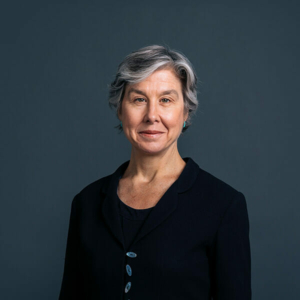Secretary of State accepts legal error and proposes that permission for controversial coal mine be quashed, but developer fights on
Cornerstone Climate, Public Law and Judicial Review, Planning and Environment

Following the Supreme Court’s recent judgment in Finch, the Secretary of State for Housing, Communities and Local Government (“the SoS”) has accepted that the decision to approve the controversial coal mine in Whitehaven, Cumbria is legally flawed, and has conceded the legal challenges to the approval. The SoS accepted the error as serious and that it deprived the public of their rights of access to information on the climate impact of the proposed mine and their rights to participate properly in the decision-making process. The decision could have been different had that public participation taken place and had the decision-makers had the full information before them.
Background
The proposed coal mine intended to extract metallurgical coal, a fuel in the blast furnace method of steel production. Blast furnace production results in greenhouse gas emissions occurring ‘downstream’ from the extraction at the mine itself. Those ‘downstream’ emissions were calculated by the claimants’ experts to be in the range of 220 million tonnes of CO2e over the lifetime of the proposed mine (to 2050). That’s about the same as burning about 788 million litres of petrol over the period.
Yet the company promoting the mine did not calculate these ‘downstream’ emissions within the Environmental Statement supporting their application, or at all. They said that the ‘downstream’ emissions were not direct or indirect effects of the project they were promoting, and so there was no breach of the Town and Country Planning (Environmental Impact Assessment) Regulations 2011 (“EIA regs”) (which required assessment, inter alia of the indirect significant effects of the project).
Legal challenges to the approval by local community group South Lakeland Action on Climate Change – Towards Transition (“SLACC”) and Friends of the Earth (“FoE”) included the argument that the SoS had erred in law in his approach to EIA because the downstream emissions were indirect significant effects of the mine and should have been assessed. The SoS now accepts that the Supreme Court in Finch supports the claimants’ argument and accepts that he and the Inspector fell into error in their approach to the requirements of the EIA regs.
In Finch the court explained that emissions resulting from the inevitable combustion of an extracted fossil fuel are effects of the extractive project, and fall to be assessed under the EIA regs. The Supreme Court also emphasised that public participation is at the heart of the EIA regs, and the purpose of the regulations is to foster democratic decision making and enable members of the public to meaningfully comment on the environmental impact of proposed developments.
The SoS’s reasons for agreeing the permission should be quashed
In the present case, applying Finch, the SoS accepted that the downstream emissions from the combustion of the extracted metallurgical coal were inevitable results of the extractive project and that the emissions were significant, meaning that they should have been assessed by the applicant within the Environmental Statement, under the EIA regs.
The SoS also accepted the contested decision would not have inevitably been the same absent this omission (considering R (Champion) v North Norfolk DC [2015] 1 WLR 3710) given the extent to which the public had been deprived of the rights conferred by the EIA regs and Directive, which rendered this a serious defect.
In the Statement of Reasons given by the SoS, reference was made to the guidance from the Supreme Court in Finch, in which Lord Leggatt emphasised that the purpose of the EIA regs is to expose the environmental impact of a project to public debate, which is to be considered in the decision-making process so that if consent is given “it is given with full knowledge of the environmental cost” [3]. Lord Leggatt also observed that errors of the kind in this case were likely to undermine the lawfulness of an approval, holding “it is essential to the validity of the decision that, before it is made, there has been a systematic and comprehensive assessment of the likely significant effects of the project” in accordance with the EIA regs [62].
The SoS agreed that the approval had deprived the public to a significant degree of access to information and participation. Similarly, the SoS agreed that the proper approach to the EIA regs would have led to a more systematic and comprehensive assessment of the emissions of the mine, which would also have been released at an early stage to members of the public for comment. This would have allowed the sufficiency of information provided for the EIA to have been challenged, and the SoS acknowledged that had the correct information been submitted, this could have had a material impact on the determination of the application for permission. It followed that the error was a serious one and had substantially prejudiced SLACC, FoE and members of the public generally.
Accordingly, after considering the impact of Finch, instructions were provided by the SoS to concede the claim.
High Court hearing will still go ahead
This morning, West Cumbria Mining (“WCM”) informed the Court that it did not agree with the SoS’s position and would not consent to judgment. This will require WCM to argue that the SoS’s reasons for conceding the legal error were wrong and/or that the SoS’s was wrong to accept that the decision could have been different had the public properly been able to participate in the process and had the decision-maker had full information on the climate impact of the proposal.
The legal challenges will be heard at the High Court on 16-18 July. The judge, Mr Justice Holgate, has also requested that the SoS be represented at the hearing.
Further impacts of Finch
Yesterday it was also announced that the SoS had made a similar concession in a challenge to the lawfulness of an Environmental Statement submitted in support of an application for an oil drilling development in Biscathorpe, Lincolnshire. Again, the SoS agreed the EIA regs had not been complied with because downstream emissions of the oil produced by the project had not been assessed within the relevant Environmental Statement, and the decision purporting to grant permission was therefore agreed to be unlawful.
A detailed analysis of the future of the fossil fuel extraction in the UK, following Finch and in light of the SoS’s approach in Whitehaven and Biscathorpe is forthcoming from the Cornerstone Climate team.
Estelle Dehon KC and Rowan Clapp represent South Lakeland Action on Climate Change – Towards Transition instructed by Matthew McFeeley of Richard Buxton Solicitors. The same team represented SLACC at the called-in inquiry in September 2021.

Marc Willers KC, Estelle Dehon KC and Ruchi Parekh represented Sarah Finch in the Supreme Court challenge, instructed by Carol Day and Rowan Smith of Leigh Day. Harriet Townsend, and Alex Williams acted for Surrey County Council in the Supreme Court, instructed by Helen Forbes. Nina Pindham acted for Friends of the Earth (one of four interveners in the Supreme Court) instructed by Katie de Kauwe and led by Paul Brown KC. David Welsh acted for another intervener, Greenpeace UK, instructed by Jennifer Jack of Harper Macleod LLP (Edinburgh) and led by Ruth Crawford KC and Richard Harwood KC.
Estelle Dehon KC and Dr. Lois Lane represented SOS Biscathorpe, acting through Mathilda Dennis, instructed by Julia Erikson of Leigh Day
SLACC was established in 2007 after a City Councillor from San Salvador visited Kendal as part of a speaking tour, and explained that mudslides in his city, caused by torrential rain as a result of climate change, had led to deaths. He brought home that climate change would get worse and affect people across the world. SLACC has actively promoted green jobs and opposed the mine proposal, garnering support from experts such as the Materials Processing Institute and Professor Paul Ekins OBE, Professor in resources and environmental policy at the UCL Institute for Sustainable Resources, University College London.








